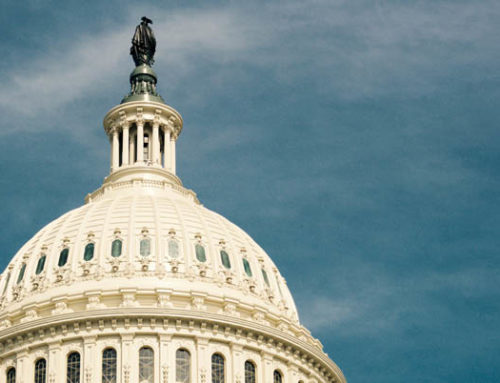REGULAR SESSION
It was clear after the 2014 elections that Texas voters were sending a markedly more conservative political cohort to Austin for the start of the 84th Regular Session on January 13, 2015. Despite wholesale change in statewide elected officials, the initial political tealeaves foretold of a favorable business session given the anticipated state budget surplus and the overwhelming partisan majorities in both the House and Senate, coupled with a conservative Executive Branch and Comptroller. After the 140 day session concluded, Sine Die on June 1, 2015, business interests appeared to fare well legislatively, generally fulfilling expectations, but the process also yielded fewer social conservative or “red meat” issues than many had expected.
Every session is unique and carries its own distinguishing characteristics, beginning with the tone and tenor set by leadership, the procedural rules adopted, and how the legislative process progressed that ultimately impacts the metrics of what legislation is actually passed, vetoed or falls short of adoption. This session was no different and most likely will be remembered for several notable policy issues, including property & margins tax cuts, open gun carry, preemption of locally enacted fracking bans, coastal windstorm insurance reform, border security, state contracting reform, and transportation funding. There were also a number of legislative and line item vetoes that were noteworthy.
BY THE NUMBERS
At the end of the day, nobody got everything they wanted or promised legislatively, and judging by the reactions of a number of lawmakers, the session was a disappointing missed opportunity; while for other members, the Legislature did what it needed to do, passing a responsible budget while addressing some important policy issues.
Overall, the 84th Session saw an increase in the number of bills filed over last session, which was not surprising given the large number of new members. Legislators proposed 6,276 bills, passing 1,323 of them, in contrast with last session’s numbers: 5,868 proposed bills with 1,437 passing. Interestingly, the Senate saw a considerable decline (-29%) in the number of bills passed, while the House saw a reduction (-67%) in the number of passed joint resolutions. See table on the next page for the 2015 figures broken down by House and Senate.
| Statistics on the 140th day Monday, June 1, 2015 | |||||||||
| House | Senate | ||||||||
| Metric | 84R | 83R | Diff | % | 84R | 83R | Diff | % | |
| Bills Filed | 4,207 | 3,950 | 257 | +6% | 2,069 | 1,918 | 151 | +8% | |
| Bills Passed | 818 | 732 | 86 | +12% | 504 | 705 | -201 | -29% | |
| Joint Resolutions Filed | 133 | 130 | 3 | +2% | 67 | 63 | 4 | +1% | |
| Joint Resolutions Passed | 2 | 6 | -4 | -67% | 5 | 4 | 1 | +25% | |
LEADERSHIP TONE AND TENOR
House:
San Antonio Republican, Joe Straus was again overwhelmingly selected Speaker of the House, by a rare record vote, with only 19 votes against him. He was officially sworn in and joined by Governor-Elect Abbott and Lt. Governor-Elect Patrick. There were several special House elections due to various electoral vacancies, and Speaker Straus presided over a Texas House with 97 Republicans and 53 Democrats, up 3 Republican members from the 2013 Session. Overall, the House had 29 new members (19%) with 63 House members having one session (42%) of experience or less.
After being sworn in, Speaker Straus emphasized in his opening remarks that the House would not be limited by ideology. He also highlighted a few of his priority issues, touching on the need to address school finance, ending highway diversions, continuing work on water resources, adhering to fiscal discipline, while providing meaningful business & property tax relief, reforming the state’s economic development programs, and developing initiatives to prevent abuses in state contracting practices. With the exception of school finance reform, the Speaker’s announced legislative priorities were accomplished, and his leadership coalition held together remarkably well on several contentious floor fights throughout the session.
When committee assignments were issued, Speaker Straus named 38 standing committees, one less than the previous session, with 24 Republican Chairs and 14 Democratic Chairs, including two new Select Committees and eliminating 3 other Special Committees.
Senate:
In the Senate, Lt. Governor Dan Patrick (R) was sworn in on January 20, 2015, presiding over a 20 to 11 member Republican majority over Democrats. There were also a number of special Senate elections due to several Senate seat vacancies, with 10 new members or a 32% turnover from the previous session. Overall, Senate Republicans were only one vote shy of attaining the customary two-thirds vote floor requirement. Historically, the Texas Senate has had a two-thirds vote requirement (21 votes) for a bill to even be eligible to receive floor consideration.
However, the Senate changed the two-thirds rule, decreasing the floor consideration threshold to a three-fifths vote (19 votes), a major rules change championed by Lt. Gov. Dan Patrick, while a candidate. The new rule proved to be very meaningful because no longer could Senate Democrats, should they have voted in unison, be able to block a measure from floor consideration. In other words, 13 Senators would need to band together to block a bill from being considered on the floor. In addition to changing the 2/3rds rule, the Senate moved to reduce the number of standing committees from 18 to 14 and made numerous member changes to committee assignments. Of those standing committee appointments, there were 12 Republican Chairs and 2 Democratic Chairs.
Lt. Governor Dan Patrick announced border security as his top agenda item for the 84th Texas Legislature. Other priority items announced included reducing business & property taxes, public education choice, transportation, public integrity unit reform, open gun carry, and family & life issues. With the exception of school choice Governor Patrick’s announced legislative priorities were accomplished, and with few exceptions, Republican’s voted along party lines (20-11) on virtually all of the most politically contentious issues that ended up passing the Senate this session.
Executive Branch:
Governor Abbott, in his first State of the State speech, addressed both Chambers of the Legislature in a Joint Session to express his support for $4.2 billion in tax cuts ($2.2 billion in “lasting” property tax relief and $2 billion in business-tax cuts) also laying out his emergency items, which included, education – early and higher education research initiatives, transportation, border security and ethics. Emergency items are the only issues allowed to be voted on by the House and Senate within the first 60 days of the Legislative session, yet many of the Governor’s initiatives took much longer than are typically seen with emergency measures, perhaps a result of Abbott’s first session leading the Executive Branch.
At the same time, Governor Abbott, with his first session officially behind him, wielded his veto power, killing 42 bills that made it to his desk and eliminating through “line-item” veto authority, $295 million out of the state budget that had initially totaled $209 billion. The number of legislative initiatives rejected was the largest total number of vetoes by a Governor since the 56 bills vetoed by Governor Perry after the 2007 session. See the table below for a comparative view of regular session vetoes dating back to 1991.
| GOVERNOR | YEAR | VETOES |
| Greg Abbott | 2015 | 42 |
| Rick Perry | 2013 | 28 |
| Rick Perry | 2011 | 25 |
| Rick Perry | 2009 | 39 |
| Rick Perry | 2007 | 56 |
| Rick Perry | 2005 | 20 |
| Rick Perry | 2003 | 50 |
| Rick Perry | 2001 | 83 |
| George W. Bush | 1999 | 34 |
| George W. Bush | 1997 | 38 |
| George W. Bush | 1995 | 26 |
| Ann W. Richards | 1993 | 27 |
| Ann W. Richards | 1991 | 36 |
Comptroller:
Another key factor setting the tone during the 84th Regular Session was the state’s huge budget surplus. At the start of the session, Comptroller Glenn Hegar reported that lawmakers had $113 billion in state revenue to work with for the 2016-17 budget period, including $7.5 billion left over from the previous budget. Deducted from that total would be approximately $5 billion for transfers to the Rainy Day Fund and State Highway Fund. The Comptroller’s forecast was better than some experts had expected, but as the session wore on, complications arose over how to structure the anticipated tax cuts that many had campaigned on, since those dollars would be subject to the state constitutional spending limits. The budget played out to be a major distraction throughout the session, shaping a huge number of issues, including those that the Governor, Lt. Governor and Speaker touched on during their early session priorities.
On June 9, 2015, Comptroller Hegar certified the Legislature’s two-year budget, which validates anticipated revenues that need to be collected over the next biennium of fund state operations. The state’s budget for 2016 and 2017 is approximately $209 billion in total spending, well within the constitutional spending limits and aided by the $295 million in line-item vetoes by Governor Abbott.
OVERALL SESSION SUMMARY
In the wake of wholesale change in all statewide offices and many new faces in the legislature, Republicans solidified their dominance in the Texas Capitol and outside of a few intra-party disputes, muscled much of their agenda through the House and the Senate with relative ease. A chief factor in that process was the change in the senate 2/3rds rule this session, which changed the political dynamics from previous sessions, enabling Republican Senators to bring up a bill and pass it without the support of a single Democrat.
At the end of the day, the session resulted in several important accomplishments, including 80% passage of the Governor’s emergency initiatives. The legislature voted to spend more money on pre-kindergarten programs, on border security, on roads and on higher education research. However, major ethics reforms failed as a result over a House and Senate disagreement concerning the disclosure of donations to political nonprofits or “dark money” provisions. Vouchers, immigration reform, repealing in-state tuition for undocumented immigrants, reforming Hazelwood benefits for military dependents, first party litigation reform, banning red light cameras, prohibiting gay marriage, and imposing spending limit formulas were not enacted, despite a large amount of campaign and session rhetoric.
LOOKING FORWARD
Assuming that school finance or some other significant matter does not dictate a return to an 84th Called Special Session, the next Regular Session of the Legislature will occur in January of 2017. Between now and then, there will be rulemakings implementing key bills from the just completed regular session and interim charges.
Another significant dynamic of interest will be the large number of anticipated elections, including the November Constitutional amendments and the upcoming primaries in March 2016, followed by the general election in November 2016, which is certain to affect legislative leadership, committee assignments and shape how biopharma issues and other matters will be debated and prioritized in future sessions.
It is too early to tell how and to what extent, the recent Supreme Court decisions, the “pay to play” accusations of Abbott by Congressman Castro, and the current legal challenges facing Attorney General Ken Paxton, will shape the political & policy landscape, but current media coverage and posturing seems to provide some evidence that these issues will find their way into campaign season. In addition, many political observers are waiting to see, what, if any impact the American Phoenix Foundation’s secret filming of legislators during the session might have during the election cycle.
We already expect that numerous members who have served in either the House of Senate will not be returning next session, either because they have already announced their retirement plans, are seeking another office, or that end up getting beat by a political challenger in the primary or general election. The legislative turnover is anticipated to result in some brain drain or loss of substantive expertise and experience and result in changes to committee assignments, a condition that presents both challenges and opportunities.
In addition to legislative member changes resulting from this election cycle (historically higher primary and general election turn-out during Presidential elections), many anticipate another leadership challenger to Speaker Joe Straus, who has already announced that he will seek a fifth term as Speaker. At this time, if we were to handicap Speaker Straus’ chances of returning as Speaker next session, would predict him as “lock”. In other words, the likelihood of the House being able to coalesce around any other candidate, particularly Democratic members, is remote at best.
What follows is a list of casualties that have publically stated that will not be here next regular session.
| Not Seeking Re-election for the 85th Legislature | ||
| Senate | House | |
|
Eltife, Kevin(R) SD -1 Fraser, Troy(R) SD-24 |
Aycock, Jimmie Don(R) HD-54 Crownover, Myra (R) HD-64 Farias, Joe (D) HD-118 Fletcher, Allen(R) HD-130 Harless, Patricia(R) HD-126 Hughes, Bryan(R) HD-5 Keffer, Jim (R) HD-60 Marquez, Marisa (D) HD 77 Otto, John (R) HD 18 Simpson, David(R) HD-7 Turner, Scott (R) HD-33 Turner, Sylvester (D) HD-139 |
|
The only possible exceptions to those members not seeking re-election or returning from those listed above could be Representatives Hughes and Simpson (bolded and in italics), since they are both seeking to replace Senator Eltife, who is retiring. Thus far, the combined Senate and House non-returning members include seven (7) Chairmen and three (3) Vice Chairmen. This is something that bears watching closely as the replacements for Senate Business & Commerce, Senate and House Natural Resources, House Appropriations, and House Public Health could prove substantively significant.






